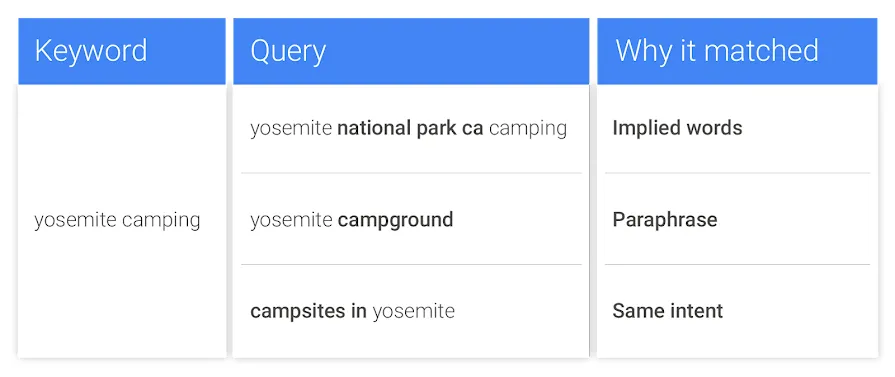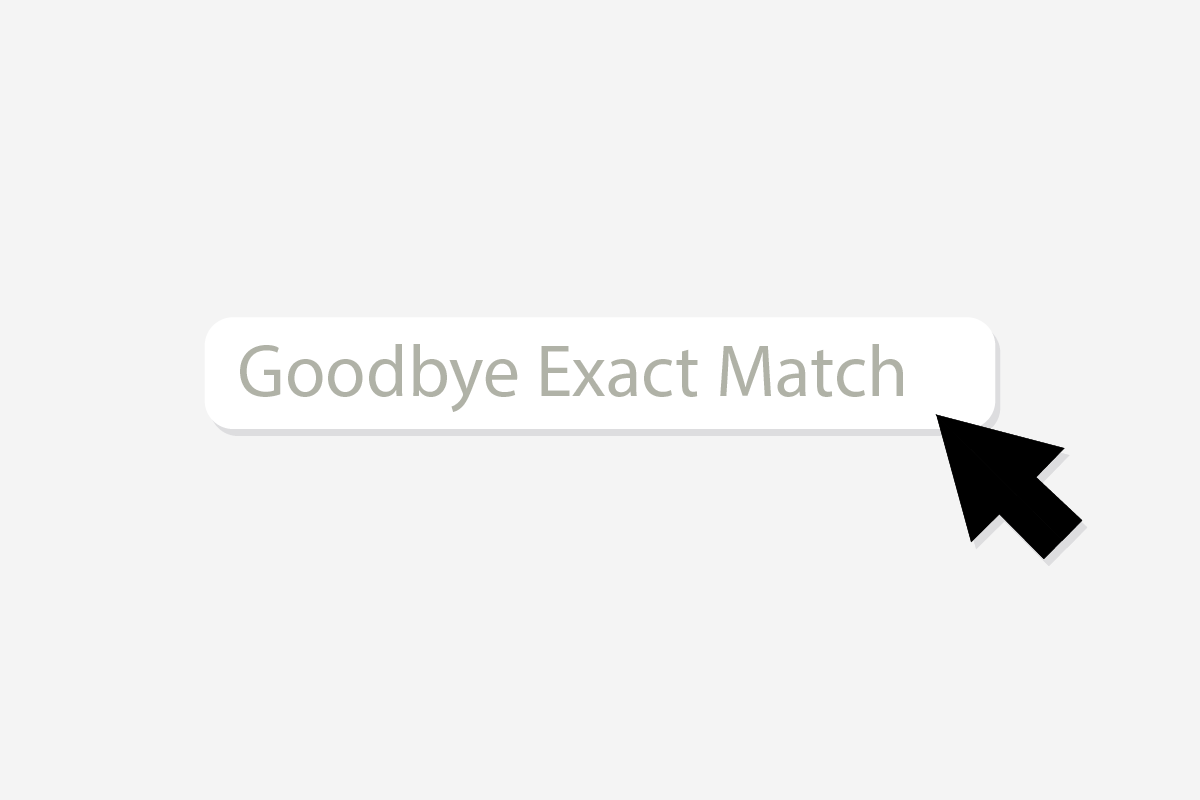Google announced in September 2018 that exact match keywords are going to start allowing close variants to appear for various search terms. This will be either good or bad for businesses utilizing Google Ads (formerly Google Adwords), depending on how you want to look at it.
Google’s theory is that people are searching for your products, but your exact match keywords are not necessarily allowing your ads to show. By allowing exact match keywords to show close variants, it will show your ads for appropriate, relevant search queries (supposedly). Below is a more thorough explanation of the changes that are coming.
Exact Match Keyword Changes
Exact match keywords traditionally work by setting a keyword for which your ads would only display if the search term matched that keyword exactly. Google’s recent announcement will be changing that.
Google will now be utilizing machine learning that will attempt to match the intent of a search instead of the exact keyword. See below for a sample chart of an exact match keyword to a query that might trigger the keyword and the reason why it matched:

The Problem for Advertisers
There is one glaring concern with allowing this to happen: some advertisers (like us) specifically use exact match keywords because we don’t want our client’s ads to appear for certain search queries. Exact match provides a means to not only keep the Cost Per Click (CPC) lower, but it also ensures the ads are reaching the right people.
While Google’s intent may be innocent, this could have major repercussions for advertisers (especially those who don’t have a regular manager in the account). As an added bonus for Google, this also means more money in their pockets.
How This Affects You
If you are running Google search campaigns and are utilizing exact match keywords, keep a close eye on your search term report over the next few months. What you’ll likely see is exact match keywords triggering ads on close variants, which could be good or bad for your business. Look more specifically at the CPC as well as the triggering search queries.
Our recommendation is to review your search term report and add negative keywords for searches that might be irrelevant or include words you don’t want to trigger ads for. This is one strategy that we implement with all of our clients on a regular basis, and it pays dividends in that it reduces their wasted spend and increases the likelihood of more quality conversions.
How to Prepare for This Change
Review Your Top Exact Match Keywords
Head to the Keywords section in Google Ads and filter them down to exact match. Of the keywords listed, look at those with more than one word and jot down all of the potential permutations of the words in different order. Those are the potential exact match keywords that could have close variants added.
Add Relevant Negatives Now
Now would be a great time to go through your historical data to review search terms that your keywords have triggered. You can also use Google’s Suggest function to preview which relevant, similar queries are being searched in order to inspire negatives to add.
This change has started to roll out in limited accounts over the last few months, but the major release takes effect October 1st.
With sufficient time spent in your Google Ads account making these recommended changes, you should see minimal impact of your account.





